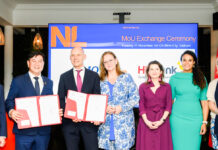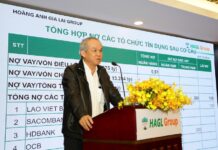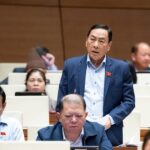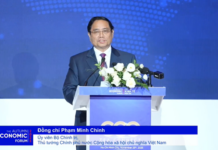Today, the National Assembly discussed two national target programs focusing on healthcare, population, and the modernization and quality enhancement of education and training.
Speaking at the Hanoi delegation, General Secretary To Lam emphasized that culture, healthcare, and education are critical pillars, serving not only as goals but also as drivers of development. These are core and vital sectors for society and the nation.
“We must have a high-quality workforce, not only in terms of health but also in resilience, mindset, knowledge, and awareness,” the General Secretary affirmed.

General Secretary To Lam speaking at the session. Photo: Pham Thang |
According to the General Secretary, regardless of growth rates, citizens must benefit from development. “High growth means little if people run out of money by the end of the month, fall ill, or live unhappily. Life should be serene, lighthearted, and joyful,” the General Secretary shared.
Emphasizing that the implementation of the two target programs is not solely the responsibility of the education and healthcare sectors, the General Secretary noted that it is a task for the entire society, requiring the participation of all citizens.
Regarding healthcare, the General Secretary suggested that the program should clearly outline specific goals for public health check-ups and improvements by 2030 and 2035.
Highlighting the importance of primary care and preventive medicine, the General Secretary cautioned that the program currently focuses too much on treatment, akin to “firefighting,” due to inadequate prevention leading to disease proliferation and a focus on emergency care.
Additionally, the General Secretary addressed environmental concerns, including air and water quality, and food safety, which are root causes of many illnesses.
“Focusing solely on medical treatment while neglecting environmental pollution, contaminated water, and poor dietary habits will only lead to more diseases,” the General Secretary analyzed.
“Without ensuring food safety, no matter how many hospitals we build or doctors we train, it will never be enough,” the General Secretary stated, emphasizing the need to address issues at their source.
In investing in education and healthcare, the General Secretary highlighted the importance of infrastructure, hospital facilities, equipment, and human resources (teachers and medical professionals).
“Are these efforts sufficient, or are there still inconsistencies that erode trust? While such cases are rare, they must not be allowed to tarnish the reputation of the entire workforce,” the General Secretary stressed.
National Target Programs Focus on Vulnerable Populations
In education, the General Secretary mentioned the initiative to strengthen school infrastructure by building 248 boarding schools in border areas, supporting children in challenging regions, with plans to expand to nearby border areas.
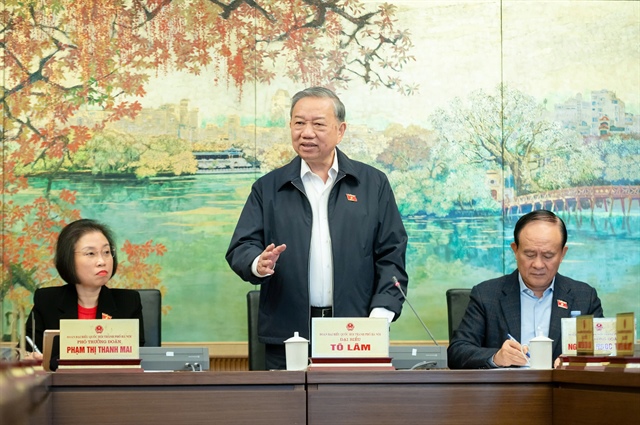 Photo: Pham Thang |
Regarding the goal of making English a second language in schools, the General Secretary questioned, “How many English teachers are there? If there aren’t enough, where will students learn, and how can we achieve this goal? It’s not just about learning English but also studying math and literature in English.”
The General Secretary also highlighted the care of abandoned children, noting that public care facilities currently serve only 3% of the need, supporting around 15,000 children.
“Are there any left behind? This is where society must step in. If society doesn’t act now, who will? There are so many abandoned children in dire circumstances…,” the General Secretary expressed.
Additionally, there are 8 million people with disabilities, including children, who require attention and care.
Therefore, the General Secretary urged early and robust investment to nurture these individuals into decent, educated contributors to society who are grateful for the support they receive…
“The national target programs must address these vulnerable populations and their specific needs in great detail,” the General Secretary concluded.
Tran Thuong
– 13:14 25/11/2025
Unlocking Ho Chi Minh City’s Potential: Annual Investment of $8–12 Billion Required, Resolution 98 Amendments Approved
The draft Resolution amending and supplementing Resolution 98 on special mechanisms and policies for Ho Chi Minh City’s development has received feedback and unanimous approval from the National Assembly Standing Committee to be submitted to the National Assembly under expedited procedures.
From the Classroom to the Boardroom: Celebrating Entrepreneurs Who Started as Teachers
Before venturing into the business world, renowned entrepreneurs such as FPT Corporation Chairman Truong Gia Binh, Shark Lien, and Nguyen Quoc Thai began their journeys as educators.






